
Castries: The Heartbeat of Saint Lucia
Castries, the capital city of Saint Lucia, is a vibrant blend of rich history and modern charm. Nestled in a picturesque bay, this bustling port city welcomes visitors with its warm Caribbean spirit and stunning natural beauty. From the moment you arrive, the colorful architecture and lively markets set the scene for an unforgettable experience. Begin your journey at Derek Walcott Square, named after the Nobel laureate poet, where you can immerse yourself in the local culture and history. The Cathedral of the Immaculate Conception, with its stunning murals and impressive architecture, is a must-visit landmark. Just a short walk away, the Castries Market offers a sensory feast of fresh produce, spices, and handmade crafts – perfect for those looking to take a piece of Saint Lucia home. For panoramic views of the city and its surroundings, head to Morne Fortune. This historic hilltop site provides breathtaking vistas and a glimpse into the island’s colonial past with its old fortifications and military history. Don’t forget to explore the nearby beaches, such as Vigie Beach and Choc Beach, where you can relax on golden sands and swim in crystal-clear waters. Castries is also a gateway to the island’s natural wonders. Take a day trip to the iconic Pitons, lush rainforests, and rejuvenating sulfur springs. Whether you’re a history buff, a nature lover, or simply in search of relaxation, Castries offers something for everyone.
Local tips in Castries
- Visit the Castries Market early in the morning for the freshest produce and best local crafts.
- Take a guided tour of Morne Fortune to fully appreciate the historical significance and panoramic views.
- Use local buses for an authentic and economical way to explore the city and surrounding areas.
- Don't miss out on trying the local street food, especially the fresh seafood and tropical fruits.
- Visit the beaches during weekdays to avoid the crowds and enjoy a more peaceful experience.
Castries: The Heartbeat of Saint Lucia
Castries, the capital city of Saint Lucia, is a vibrant blend of rich history and modern charm. Nestled in a picturesque bay, this bustling port city welcomes visitors with its warm Caribbean spirit and stunning natural beauty. From the moment you arrive, the colorful architecture and lively markets set the scene for an unforgettable experience. Begin your journey at Derek Walcott Square, named after the Nobel laureate poet, where you can immerse yourself in the local culture and history. The Cathedral of the Immaculate Conception, with its stunning murals and impressive architecture, is a must-visit landmark. Just a short walk away, the Castries Market offers a sensory feast of fresh produce, spices, and handmade crafts – perfect for those looking to take a piece of Saint Lucia home. For panoramic views of the city and its surroundings, head to Morne Fortune. This historic hilltop site provides breathtaking vistas and a glimpse into the island’s colonial past with its old fortifications and military history. Don’t forget to explore the nearby beaches, such as Vigie Beach and Choc Beach, where you can relax on golden sands and swim in crystal-clear waters. Castries is also a gateway to the island’s natural wonders. Take a day trip to the iconic Pitons, lush rainforests, and rejuvenating sulfur springs. Whether you’re a history buff, a nature lover, or simply in search of relaxation, Castries offers something for everyone.
When is the best time to go to Castries?
Iconic landmarks you can’t miss
Castries Market
Discover the heart of St. Lucia at Castries Market, a vibrant fresh food market brimming with local produce, crafts, and rich cultural experiences.
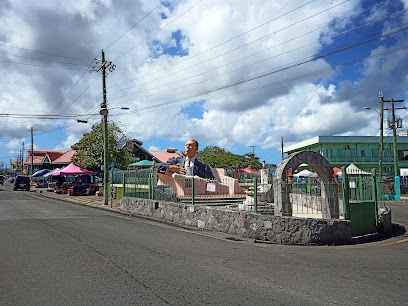
Pointe Seraphine Cruise Port
Discover the lively Pointe Seraphine Cruise Port in Castries, a vibrant hub for cruise travelers featuring local shops, dining, and stunning coastal views.
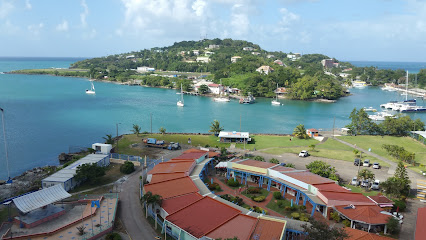
Cream N Bean
Experience the delightful flavors of Cream N Bean, a top ice cream destination in Castries, St. Lucia, offering an array of sweet treats in a vibrant setting.
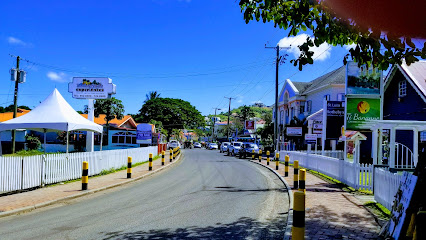
Blue Coral Mall Ltd
Explore the vibrant Blue Coral Mall in Castries, a shopper's paradise blending local charm and international flair.
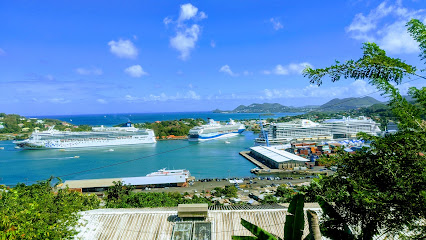
The Coal Pot Restaurant
Experience the essence of Caribbean seafood at The Coal Pot Restaurant in Castries, where fresh flavors and island hospitality meet.
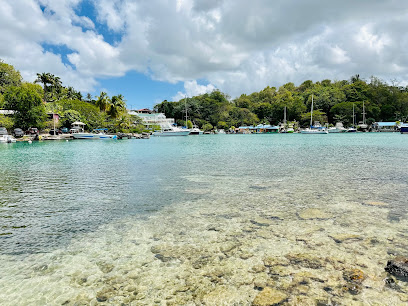
La Place Carénage
Discover the vibrant shopping experience at La Place Carénage, where local culture meets a variety of retail and dining options in the heart of Castries.
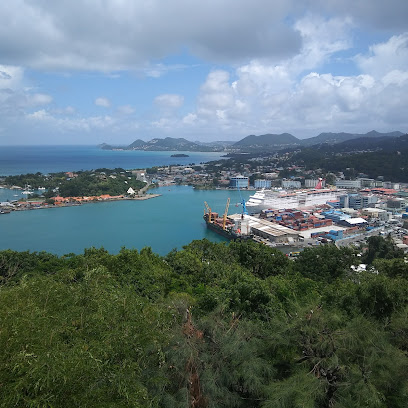
Blue Lotus Spa & Wellness St Lucia
Experience ultimate relaxation and rejuvenation at Blue Lotus Spa & Wellness in St. Lucia, your serene escape for wellness treatments.
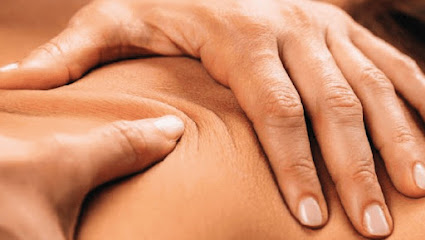
The Minor Basilica of the Immaculate Conception (Cathedral)
Discover the stunning Minor Basilica of the Immaculate Conception in Castries, a captivating blend of Gothic architecture and spiritual serenity.
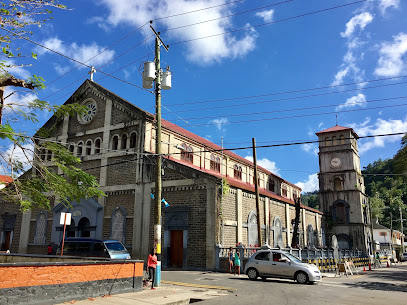
Pink Plantation
Discover the exquisite flavors of St. Lucia at Pink Plantation, a serene restaurant offering breathtaking views and local culinary delights.
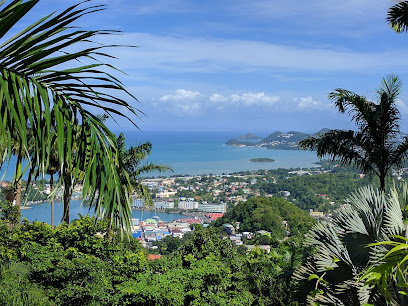
Fort Rodney
Explore the captivating history and stunning views at Fort Rodney, St. Lucia's iconic 18th-century fortress overlooking the Caribbean.
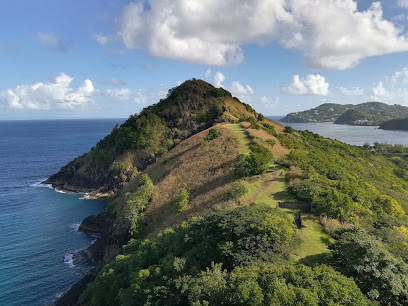
Carnival Sailing Limited
Explore the breathtaking Caribbean waters with Carnival Sailing Limited, your premier boat tour agency in Castries, St. Lucia.
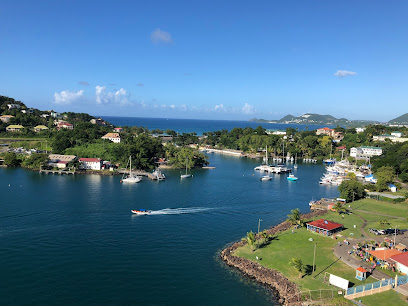
Eudovic's Art Studio
Explore the vibrant artistry of Eudovic's Art Studio in Good Lands, St. Lucia, where Caribbean culture and creativity come to life.
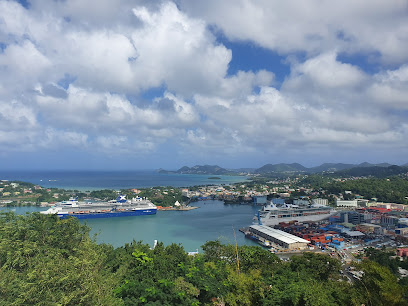
Hackshaw's Boat Charters St. Lucia
Experience unforgettable boat tours, fishing adventures, and whale watching in the stunning waters of St. Lucia with Hackshaw's Boat Charters.
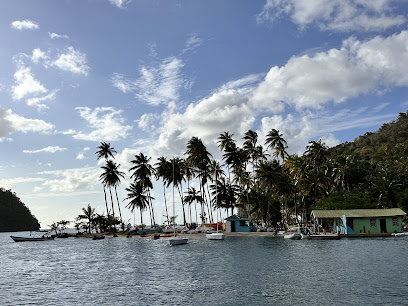
Castries City View Point
Experience the stunning vistas of Castries City View Point, where breathtaking landscapes and vibrant cityscapes meet in perfect harmony.
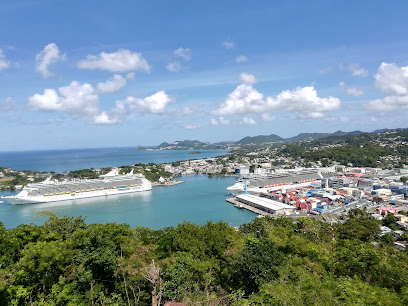
Derek Walcott square
Explore Derek Walcott Square in Castries: A vibrant cultural hub celebrating St. Lucia's heritage, arts, and local life.
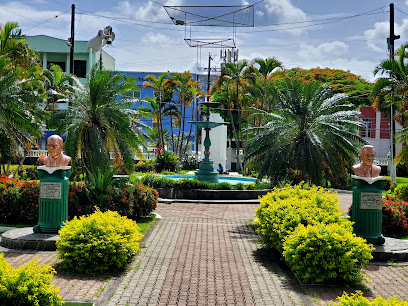
Unmissable attractions to see
Plage des Salines
Discover the enchanting beauty of Plage des Salines, where pristine sands meet turquoise waters in Martinique's tropical paradise.
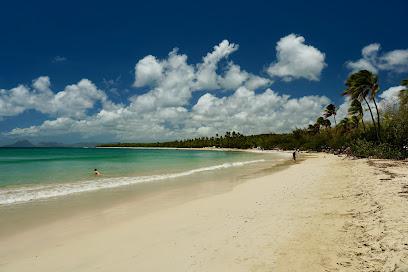
Rodney Bay Marina
Explore Rodney Bay Marina: A vibrant hub for relaxation, adventure, and local culture in the heart of St. Lucia's stunning Caribbean paradise.
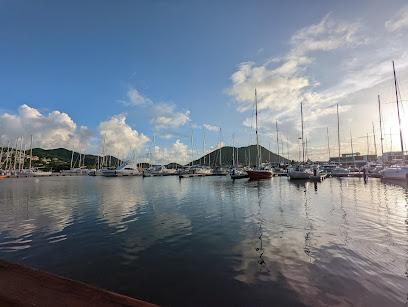
Daren Sammy Cricket Ground.
Experience the excitement of Caribbean cricket at Daren Sammy Cricket Ground in Gros Islet, a vibrant attraction for tourists and sports lovers alike.
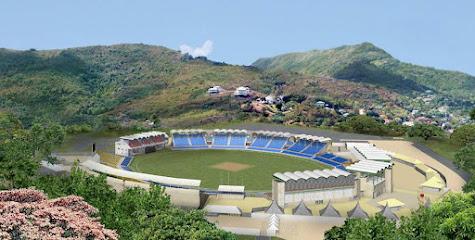
Savanna of Petrifications
Explore the stunning Savanna of Petrifications in Martinique, where nature's beauty meets geological wonders amidst breathtaking landscapes.
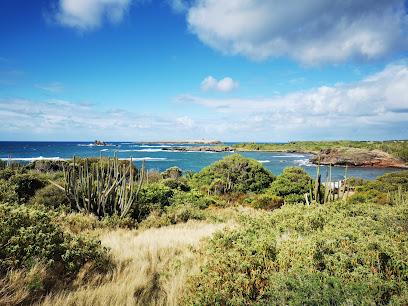
Saint Lucia National Trust
Uncover the cultural tapestry and natural wonders at Saint Lucia National Trust—where heritage meets breathtaking landscapes.
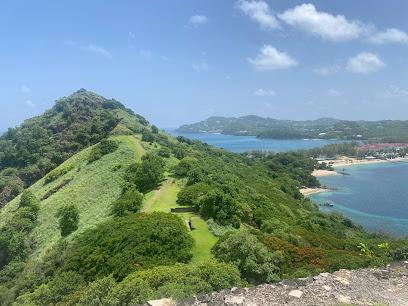
Point de Vue Rocher du Diamant
Experience breathtaking views of the Caribbean Sea and Diamond Rock at Point de Vue Rocher du Diamant, a must-visit observation deck in Martinique.
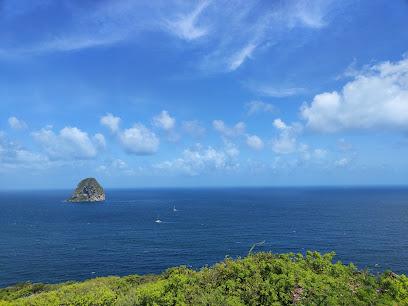
Ultra Lounge
Experience the lively atmosphere at Ultra Lounge, Rodney Bay, where delicious food, refreshing drinks, and vibrant nightlife come together in St. Lucia.
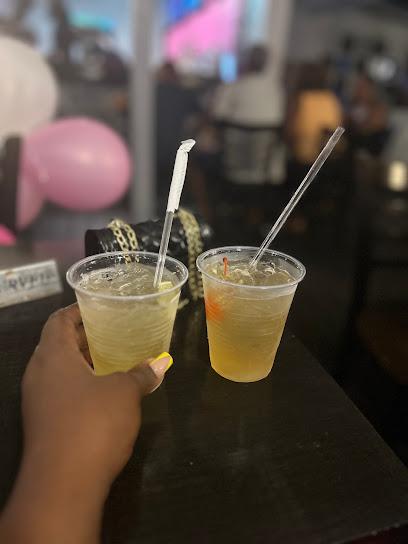
The Minor Basilica of the Immaculate Conception (Cathedral)
Explore the rich cultural and spiritual heritage at The Minor Basilica of the Immaculate Conception in Castries, a true architectural gem of St. Lucia.
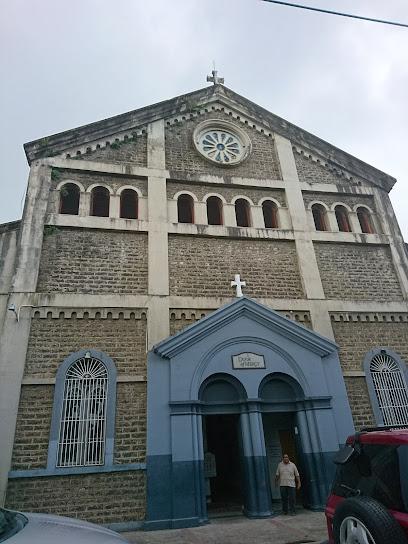
Treetop Adventure Park
Discover adventure and breathtaking views at Treetop Adventure Park, a premier destination for thrill-seekers in the heart of St. Lucia's lush landscapes.
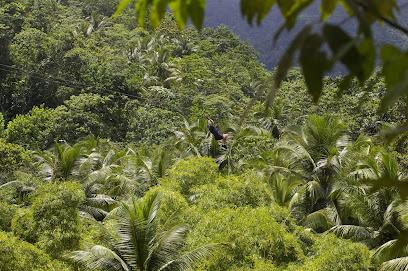
Rainforest Adventure
Discover the breathtaking beauty of Rainforest Adventure in St. Lucia, where nature meets adventure and unique souvenirs await.
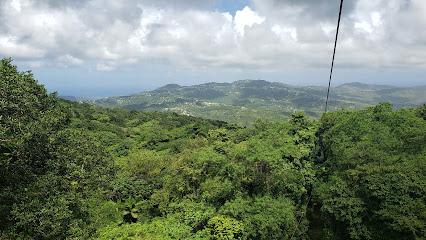
St. Lucia Distillers Ltd
Experience the essence of St. Lucia through its renowned rum at St. Lucia Distillers Ltd, where tradition meets taste.
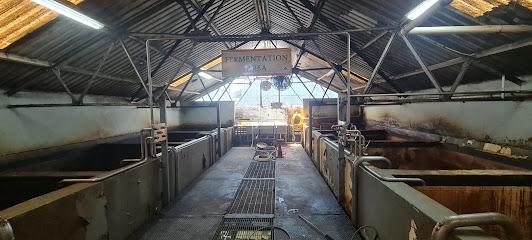
Serenity Park
Explore the natural beauty of Serenity Park in Castries, St. Lucia, where lush landscapes and serene paths offer a peaceful retreat amidst vibrant local culture.
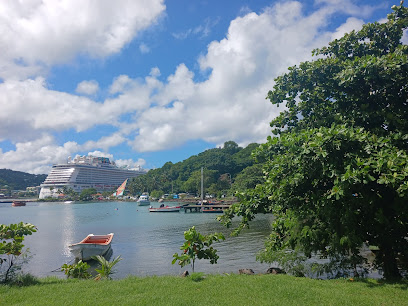
Fort Rodney
Explore the rich history and breathtaking views at Fort Rodney, a must-visit attraction on Pigeon Island, St. Lucia.
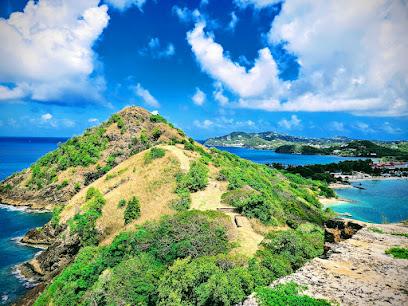
Marigot Bay
Explore Marigot Bay, St. Lucia: A breathtaking destination with crystal-clear waters, lush landscapes, and vibrant local culture.
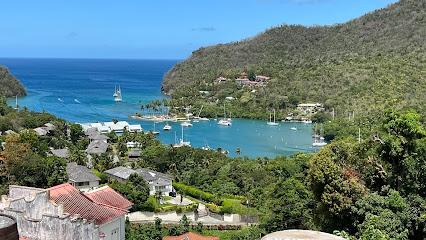
Reduit Beach
Discover the breathtaking beauty of Reduit Beach in St. Lucia, where golden sands and turquoise waters create a perfect tropical escape.
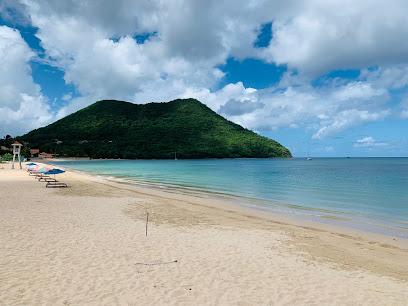
Essential places to dine
The Coal Pot Restaurant
Discover exquisite seafood and breathtaking views at The Coal Pot Restaurant in St. Lucia – where every meal is a celebration of flavor.
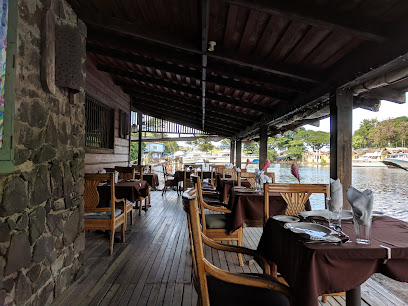
Pink Plantation
Experience exquisite dining at Pink Plantation in St. Lucia, where local flavors meet breathtaking views in an enchanting tropical setting.
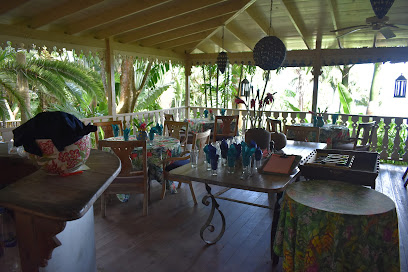
Hardest Hard Restaurant & Bar
Discover the flavors of St. Lucia at Hardest Hard Restaurant & Bar – where Caribbean cuisine meets lively ambiance.
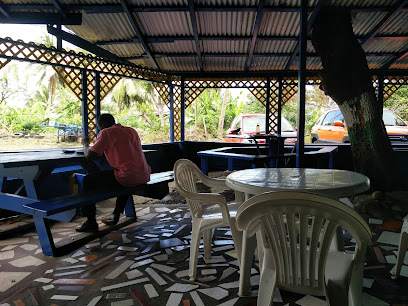
Chef Robby's Caribbean Pirates
Discover authentic Caribbean cuisine at Chef Robby's Caribbean Pirates in Castries - a culinary treasure waiting to delight your senses.
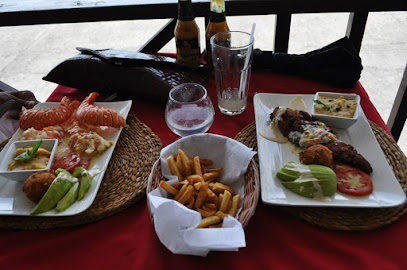
Pink Papaya
Experience the vibrant flavors of St. Lucia at Pink Papaya – a culinary gem in Castries offering delicious local dishes in a charming atmosphere.
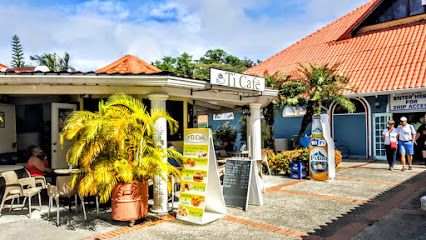
The Balcony Restaurant & Bar St.Lucia
Experience authentic Caribbean cuisine at The Balcony Restaurant & Bar in Castries - where breathtaking views meet delightful flavors.
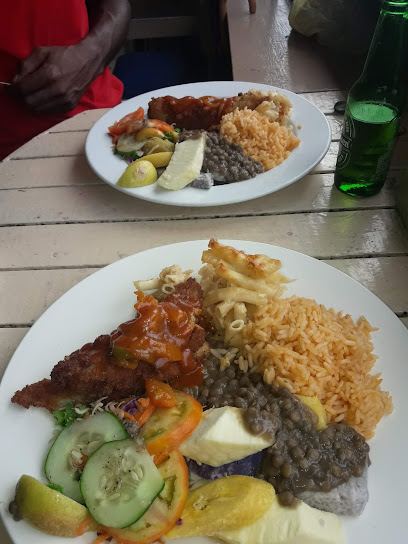
Sabay Sabaw Filipino Asian Cuisine
Savor authentic Filipino cuisine at Sabay Sabaw in Castries - where every bite tells a story.
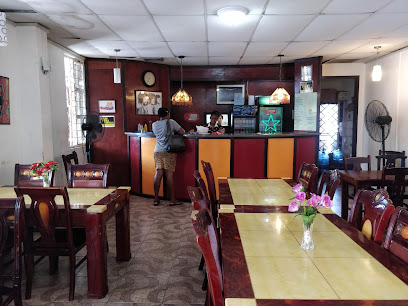
Indulge
Experience authentic St. Lucian cuisine at Indulge Bistro in Castries—where fresh ingredients meet culinary excellence.
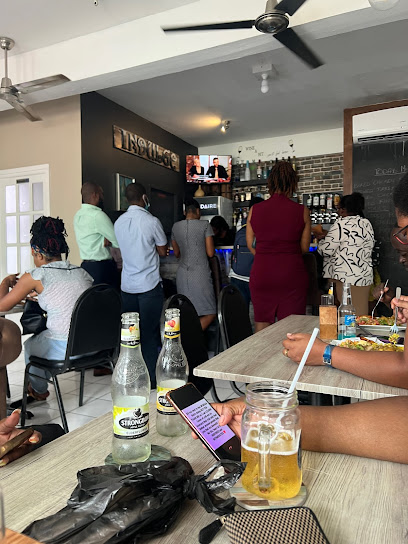
Aunties place
Experience authentic St. Lucian cuisine at Aunties Place - a cozy restaurant and bar in Castries offering delicious food at great prices.
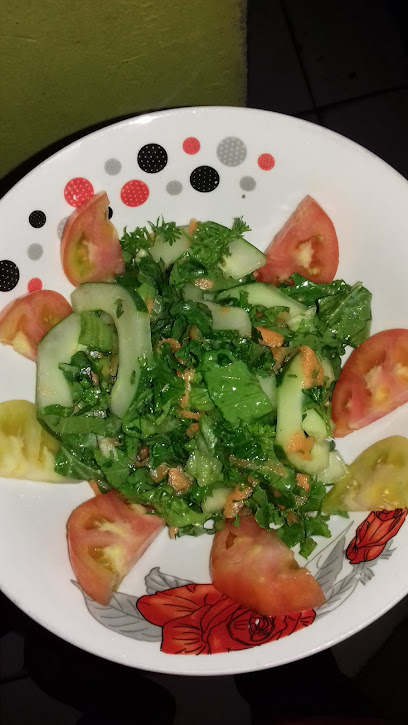
Livity Foods Ltd
Experience authentic Caribbean cuisine at Livity Foods Ltd in Castries, where fresh ingredients meet vibrant local flavors.
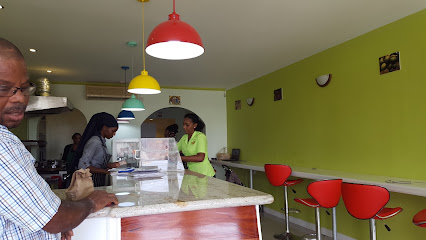
JC's Restaurant & Bar
Experience authentic Caribbean cuisine at JC's Restaurant & Bar in Castries – where flavor meets island hospitality.
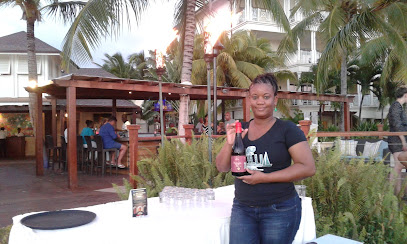
La Burger Joint
Experience mouthwatering burgers at La Burger Joint, where local flavors meet fast food delight in the heart of Castries.
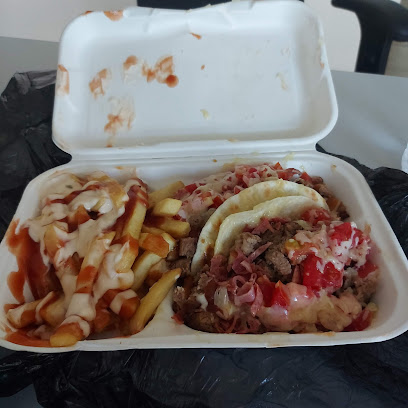
Quisine | The Little Bistro
Experience the flavors of St. Lucia at Quisine | The Little Bistro - where every meal tells a story.
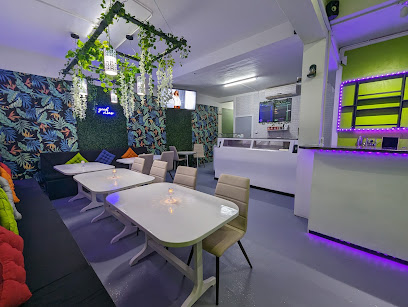
The White House Restaurant and Bar
Experience authentic Caribbean cuisine with breathtaking views at The White House Restaurant and Bar in Castries.

7 A Live Restaurant & Bar
Experience authentic Caribbean flavors at 7 A Live Restaurant & Bar in Castries, where vibrant atmosphere meets delicious local cuisine.
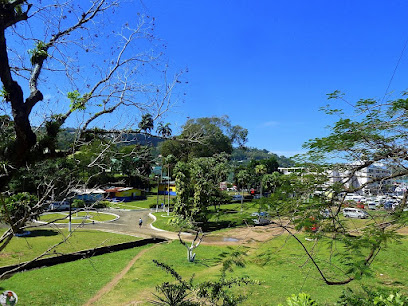
Markets, malls and hidden boutiques
Castries Market
Discover the authentic flavors and vibrant culture of St. Lucia at Castries Market, a must-visit for every traveler.
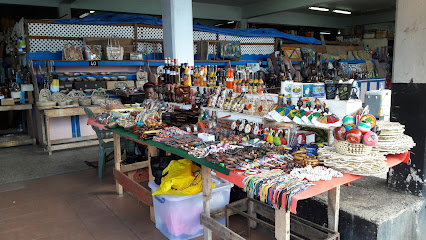
Blue Coral Mall Ltd
Discover Blue Coral Mall: A Shopping Haven in Castries with Diverse Stores and Delicious Dining Options.
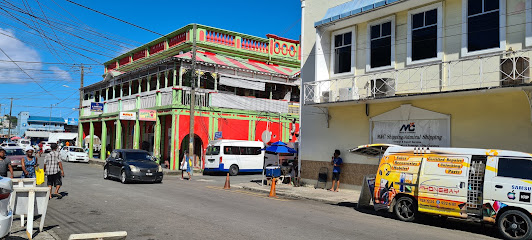
La Place Carénage
Experience the vibrant shopping and dining scene at La Place Carénage, the premier shopping mall in Castries, St. Lucia.
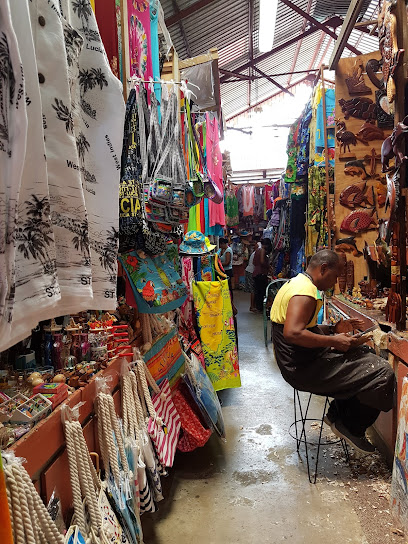
Duty Free Pointe Seraphine Shopping Complex
Explore the vibrant Duty Free Pointe Seraphine Shopping Complex in St. Lucia for unbeatable shopping deals and local treasures amidst stunning views.
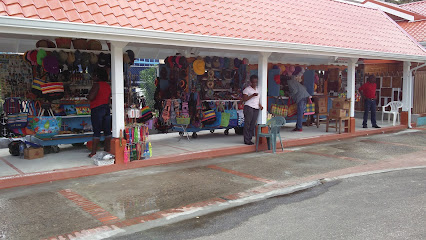
Hobie
Discover stylish apparel and local fashion at Hobie, a must-visit clothing store in beautiful Bisee, St. Lucia.
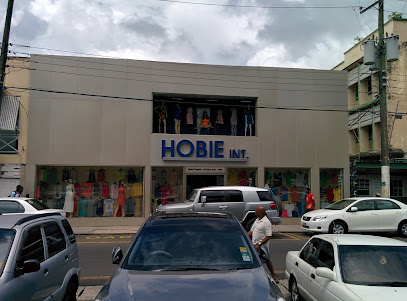
meme bete
Explore Meme Bete in Castries for unique, handcrafted handbags that embody the spirit of St. Lucia's artistry and culture.
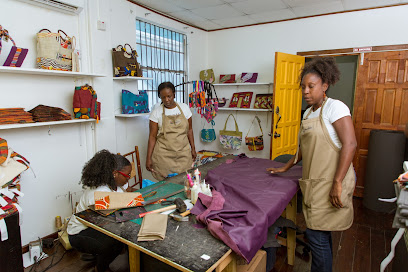
Dollar City
Explore unique clothing styles and local treasures at Dollar City, the vibrant shopping destination in the heart of Castries, St. Lucia.
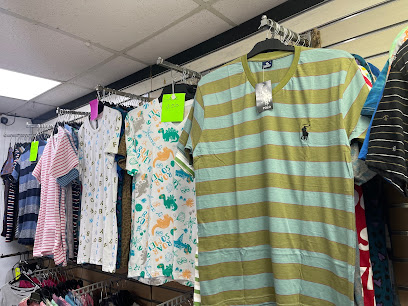
PorshLyfe
Explore stylish women's apparel at PorshLyfe in Castries, where local trends meet unique fashion in a chic shopping environment.

Scott's Underground Boutique
Explore Scott's Underground Boutique in Castries for unique clothing that captures the vibrant spirit of St. Lucia's fashion scene.

Valcyn Ltd
Discover stylish and high-quality baby clothing at Valcyn Ltd, a charming boutique in the heart of Castries, St. Lucia.
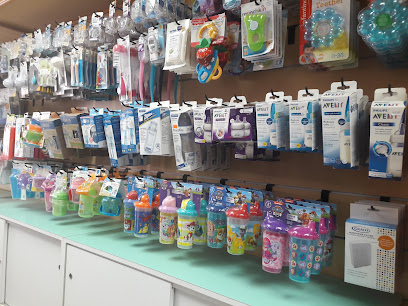
Kaycee's
Experience local fashion and hospitality at Kaycee's, your go-to clothing store in Castries, St. Lucia.
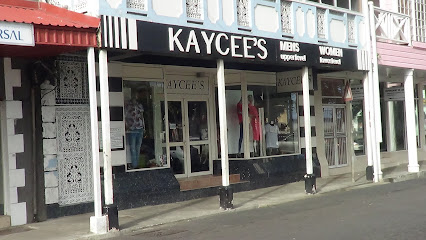
EGET boutique
Discover unique gifts and local treasures at EGET Boutique in Castries, the perfect spot for memorable souvenirs from St. Lucia.
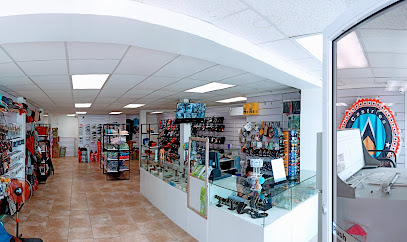
Nelly's Boutique
Discover unique fashion treasures at Nelly's Boutique in St. Lucia, where local style meets contemporary trends for the perfect shopping experience.

A Little Bit of Africa
Explore A Little Bit of Africa in Castries, St. Lucia - A Boutique Celebrating African Culture and Craftsmanship.

Voyager Department Store, A. F. Valmont Building
Discover the vibrant shopping experience at Voyager Department Store in Castries, a hub for local crafts, fashion, and everyday essentials.
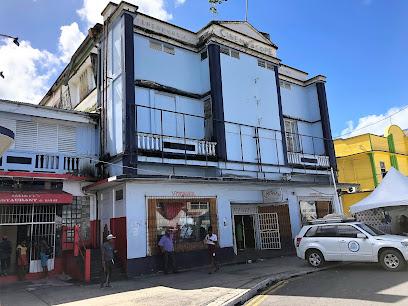
Essential bars & hidden hideouts
The Balcony Restaurant & Bar St.Lucia
Experience the vibrant flavors of St. Lucia at The Balcony Restaurant & Bar, where delicious local cuisine meets stunning views in Castries.
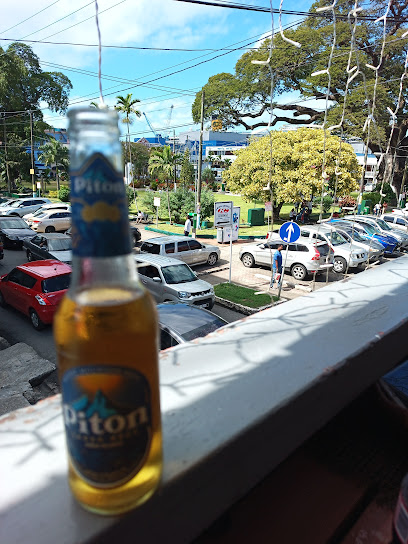
Aunties place
Experience authentic St. Lucian cuisine at Auntie's Place, a vibrant bar and restaurant in Castries, where flavors come alive in a warm and welcoming atmosphere.
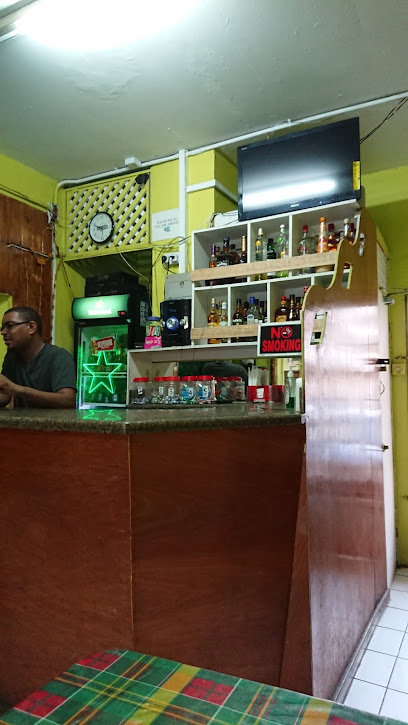
Dax Sports Bar
Experience the vibrant atmosphere of Dax Sports Bar in Castries, St. Lucia, where sports meet delicious Caribbean flavors.
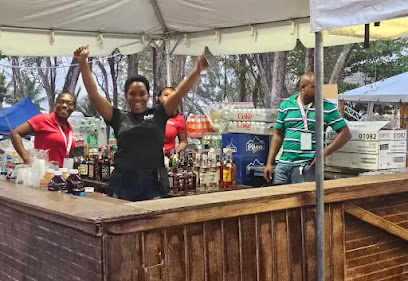
Kings Sports Bar
Experience the vibrant atmosphere and local flavors at Kings Sports Bar in Castries, the perfect spot for relaxation and socializing.
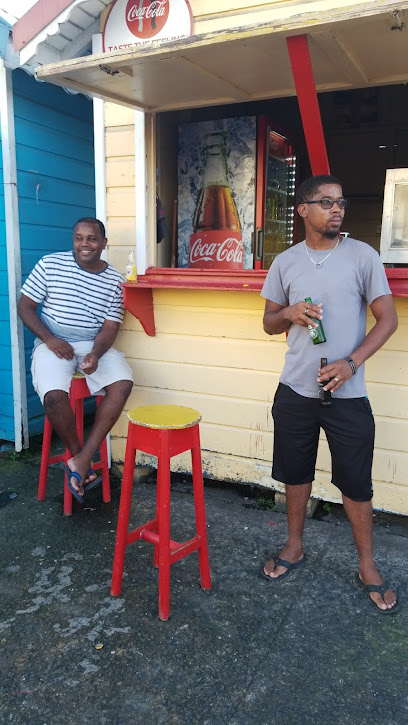
Drink Sumthing
Discover the vibrant atmosphere of Drink Sumthing, a must-visit bar in Castries offering refreshing beverages and a taste of local St. Lucian culture.
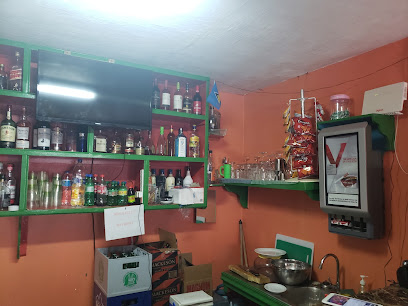
JJ'S Bar Feat ATOMIK
Experience the vibrant flavors of St. Lucia at JJ'S Bar Feat ATOMIK, Castries' premier bar and grill, perfect for food lovers and adventurers.
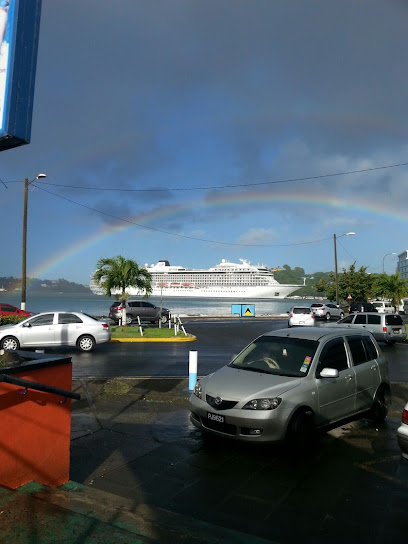
Pensioners Corner - Free WiFi
Discover the inviting atmosphere of Pensioners Corner, a cozy bar in Castries offering free WiFi and a diverse drink selection for all travelers.
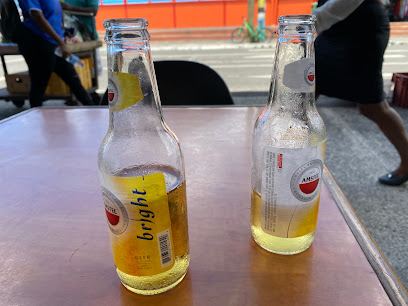
Rise Again Hideaway Bar
Discover the vibrant atmosphere of Rise Again Hideaway Bar in Castries, St. Lucia, where tropical drinks and local culture come together for an unforgettable experience.
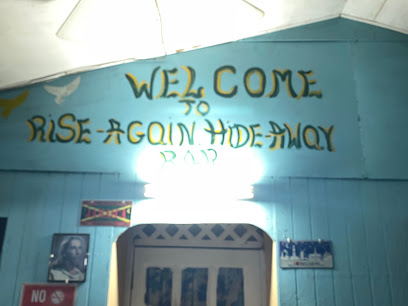
Compton's Entertainment Centre, Bois Patat
Discover the lively nightlife of Castries at Compton's Entertainment Centre, where local drinks and vibrant music create unforgettable experiences.

Blue Chiller
Experience the vibrant nightlife and signature cocktails at Blue Chiller, the heart of Castries' social scene.

Elev8 Bar & Lounge
Experience the vibrant atmosphere and exquisite cocktails at Elev8 Bar & Lounge in Castries, the perfect retreat for tourists seeking relaxation and entertainment.
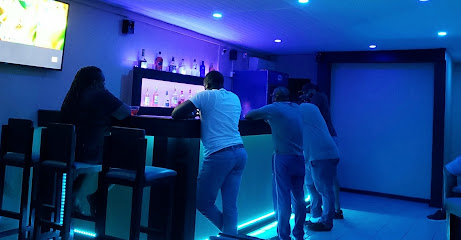
Tropica Vybz
Experience the authentic flavors of St. Lucia at Tropica Vybz, a vibrant grill in Castries offering a delightful menu and lively tropical atmosphere.
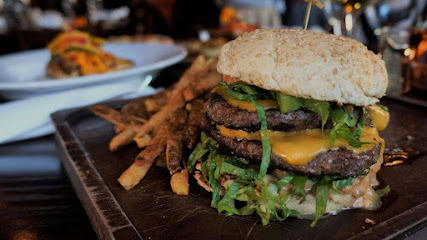
X vibrations
Discover the lively ambiance and local flavors at X Vibrations, Castries' premier bar for a vibrant nightlife experience.
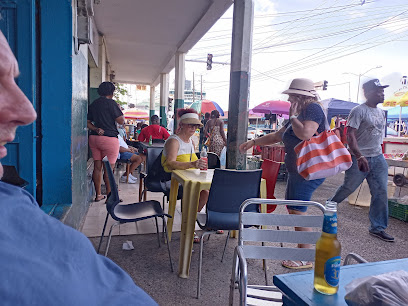
Sky bar
Experience breathtaking views and tropical cocktails at Sky Bar in Castries, the perfect rooftop oasis for tourists seeking relaxation and vibrant nightlife.
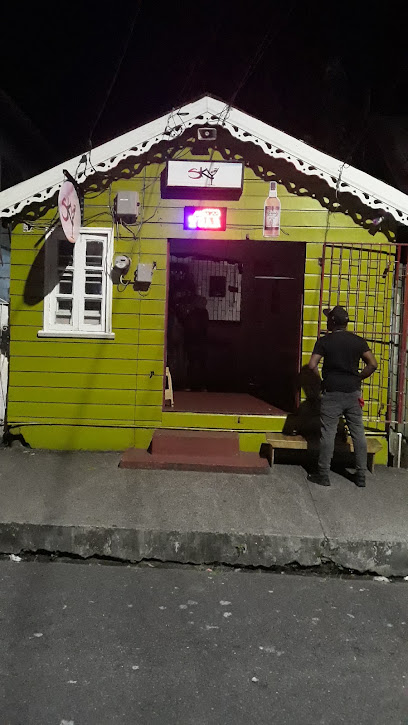
Local Phrases
-
- HelloBonjou
[Bon-jou] - GoodbyeOrevwa
[O-rev-wa] - YesWi
[Wee] - NoNon
[Non] - Please/You're welcomeTanpri
[Tahn-pree] - Thank youMèsi
[Meh-see] - Excuse me/SorryEskize mwen
[Ess-kee-zay mwen] - How are you?Kijan ou ye?
[Kee-jan oo yay] - Fine. And you?Byen. E ou?
[Byen. Ay oo?] - Do you speak English?Ou pale angle?
[Oo pah-lay ahn-glay] - I don't understandMwen pa konprann
[Mwen pah kohn-pran]
- HelloBonjou
-
- I'd like to see the menu, pleaseMwen ta renmen we meni an, tanpri
[Mwen tah ren-men way meh-nee ahn, tahn-pree] - I don't eat meatMwen pa manje vyann
[Mwen pah manj vyan] - Cheers!Santé!
[San-tay] - I would like to pay, pleaseMwen ta renmen peye, tanpri
[Mwen tah ren-men pay-yay, tahn-pree]
- I'd like to see the menu, pleaseMwen ta renmen we meni an, tanpri
-
- Help!Sevè!
[Seh-veh] - Go away!Alé!
[Ah-lay] - Call the Police!Rele polis!
[Reh-lay poh-lees] - Call a doctor!Rele yon doktè!
[Reh-lay yohn dok-tay] - I'm lostMwen pedi
[Mwen peh-dee] - I'm illMwen malad
[Mwen mal-ahd]
- Help!Sevè!
-
- I'd like to buy...Mwen ta renmen achte...
[Mwen tah ren-men asht] - I'm just lookingMwen jis wè
[Mwen zje vay] - How much is it?Konbyen sa koute?
[Kohn-byen sah koo-tay] - That's too expensiveSa twò chè
[Sah twah shay] - Can you lower the price?Ou kapab redwi pri sa a?
[Oo kah-pah reh-dwee pree sah ah]
- I'd like to buy...Mwen ta renmen achte...
-
- What time is it?Ki lè li ye?
[Kee lay lee yay] - It's one o'clockLè a senk
[Lay ah sank] - Half past (10)Demi disè
[Deh-mee dee-say] - MorningMaten
[Mah-ten] - AfternoonApremidi
[Ah-pray-mee-dee] - EveningSwa
[Swah] - YesterdayYè
[Yeah] - TodayJodi a
[Joh-dee ah] - TomorrowDemen
[Day-men] - 1Yon
[Yohn] - 2De
[Day] - 3Twaz
[Twayz] - 4Kat
[Kaht] - 5Senk
[Sank] - 6Sis
[Sees] - 7Sèt
[Set] - 8Uit
[Weet] - 9Nèf
[Nef] - 10Disè
[Dee-say]
- What time is it?Ki lè li ye?
-
- Where's a/the...?Ki koté...?
[Kee koh-tay] - What's the address?Ki adres la?
[Kee ah-dres lah] - Can you show me (on the map)?Ou kapab montre mwen (sou kat la)?
[Oo kah-pah mohn-tray mwen (soo kaht lah)] - When's the next (bus)?Kilè pròchenn (bis-la)?
[Kee-lay proh-shen (bees-lah)] - A ticket (to ....)Yon tikè (pou ....)
[Yohn tee-kay (poo)]
- Where's a/the...?Ki koté...?
History of Castries
-
Castries was established by the French in 1650 as 'Carenage' due to its deep natural harbor. Named after Charles Eugène Gabriel de La Croix, Marquis de Castries, it later became a significant port and economic hub.
-
Castries was repeatedly contested between the French and the British from the 17th to the 19th centuries. It changed hands 14 times before the British finally gained control in 1814, shaping much of the city's colonial architecture and cultural influences.
-
On June 19, 1948, a devastating fire swept through Castries, destroying three-quarters of the city. This catastrophic event led to significant rebuilding efforts and modern urban planning, transforming Castries into a more resilient and structured city.
-
Saint Lucia gained independence from British rule on February 22, 1979. Castries, as the capital city, became the political and administrative heart of the newly independent nation, hosting national celebrations and government offices.
-
Nobel laureate Sir Arthur Lewis, born in Castries, has had a lasting impact on the city's cultural and intellectual landscape. His contributions to economics and development theory are celebrated, and his legacy continues to inspire educational and cultural institutions in the city.
-
Completed in 1897, this cathedral is one of the most iconic landmarks in Castries. It reflects the city's rich religious history and is known for its impressive architecture and vibrant murals that depict both Christian themes and local culture.
-
Established in 1894, the Castries Market is a bustling hub of local trade and culture. It offers a vibrant array of goods, from fresh produce to handmade crafts, and serves as a testament to the city's economic and social life.
-
Named after the Nobel Prize-winning poet Derek Walcott, this central square in Castries is a cultural focal point. It features a statue of Walcott, a bandstand, and the historic Castries Public Library, reflecting the city's literary and artistic heritage.
Castries Essentials
-
Castries, the capital of Saint Lucia, is accessible primarily through Hewanorra International Airport (UVF), located about 40 miles south of Castries. Regular shuttle services, taxis, and rental cars are available to transport you to the city. Alternatively, George F.L. Charles Airport (SLU) is closer, mainly serving regional flights. Cruise ships also frequently dock at the Castries Harbour, providing another route for visitors.
-
Once in Castries, getting around is straightforward. Taxis are easily accessible and can be hired for short trips or full-day excursions. Minibuses are the primary form of public transportation, offering an affordable way to travel within the city and to nearby areas. Car rentals are available for those who prefer to explore at their own pace. Walking is also a viable option for navigating the city center.
-
The official currency in Saint Lucia is the Eastern Caribbean Dollar (XCD). U.S. dollars are widely accepted, but it's advisable to carry some local currency for smaller establishments. Credit cards are accepted in most hotels, restaurants, and shops in Castries. ATMs are available throughout the city, providing convenient access to cash.
-
Castries is generally safe for tourists, but it's essential to stay vigilant. Avoid walking alone at night, especially in areas like Marchand and the Wilton's Yard neighborhood, which are known for higher crime rates. Keep your belongings secure and be cautious in crowded areas, such as markets and bus stations. Always use reputable transportation services.
-
In case of an emergency, dial 911 for immediate assistance. Castries has several medical facilities, including Victoria Hospital, which provides emergency services. It's advisable to have travel insurance that covers medical emergencies. For minor health issues, pharmacies are readily available throughout the city.
-
Fashion: Do dress casually but neatly. Avoid overly revealing clothing, especially when visiting religious sites. Religion: Do respect local customs and traditions. Remove hats and sunglasses when entering churches. Public Transport: Do be polite to drivers and fellow passengers. Don't expect strict adherence to schedules. Greetings: Do greet locals with a friendly 'Good day' or 'Good evening.' Eating & Drinking: Do try local cuisine and be gracious when offered food. Don't refuse hospitality, as it is considered rude.
-
To experience Castries like a local, visit the Castries Market to buy fresh produce and local crafts. Take a walk around Derek Walcott Square and explore the nearby Cathedral Basilica of the Immaculate Conception. For an authentic culinary experience, try the street food at Jeremie Street. Engage with locals, who are generally friendly and willing to share insights about their culture and history.
Trending Landmark in Castries
-
Castries Market
-
Pointe Seraphine Cruise Port
-
Cream N Bean
-
Blue Coral Mall Ltd
-
The Coal Pot Restaurant
-
La Place Carénage
-
Blue Lotus Spa & Wellness St Lucia
-
The Minor Basilica of the Immaculate Conception (Cathedral)
-
Pink Plantation
-
Fort Rodney
-
Carnival Sailing Limited
-
Eudovic's Art Studio
-
Hackshaw's Boat Charters St. Lucia
-
Castries City View Point
-
Derek Walcott square
Nearby Cities to Castries
-
Things To Do in Marigot Bay
-
Things To Do in Dauphin
-
Things To Do in Rodney Bay
-
Things To Do in Anse la Raye
-
Things To Do in Gros Islet
-
Things To Do in Canaries
-
Things To Do in Praslin
-
Things To Do in Soufrière
-
Things To Do in Malgretoute
-
Things To Do in Micoud
-
Things To Do in Choiseul
-
Things To Do in Laborie
-
Things To Do in Vieux Fort
-
Things To Do in Georgetown
-
Things To Do in Chateaubelair











